Margit Carstensen
Birth : 1940-02-29, Kiel, Germany
History
Margit Carstensen (born 29 February 1940) is a German theatre and film actress, best known outside Germany for roles in the works of film director Rainer Werner Fassbinder.

Using unpublished and newly digitalised archive footage and film material, Bettina Böhler has brilliantly assembled this film about the life and work of the exceptional artist Christoph Schlingensief, who died in 2010.
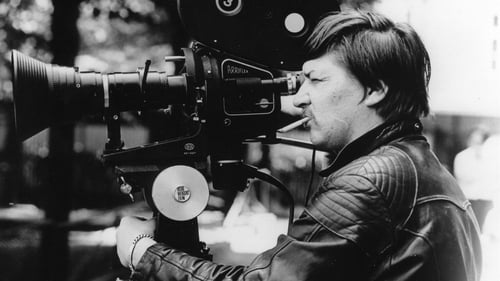
Herself
A film portrait of the influential Bavarian actor, director and screenwriter who publicly confessed
his homosexuality.

Rainer Werner Fassbinder was probably Germany’s most significant post-war director. His swift and dramatic demise at the early age of 37 in 1982 left behind a vacuum in European filmmaking that has yet to be filled, as well as a body of unique, multi-layered and multifarious work of astonishing consistency and rigour. From 1969 onwards, Danish director and film historian Christian Braad Thomsen maintained a close yet respectfully distanced friendship with Fassbinder. Fassbinder – Lieben ohne zu fordern is based on his personal memories as well as a series of conversations and interviews he held with Fassbinder and his mother Lilo in the 1970s.

Frau Sandberg
The film tells different stories in a kind of parallel Germany about love, affection and hatred.

The movie version of Christoph Schlingensief's stageplay.

Self
A documentary about the life of Karlheinz Böhm from his film career to his charity activities in Ethiopia.

Linda Barnes
Paul, a man suffering from cerebral palsy, lives an unfulfilled life in a nursing home. Sitting in his wheelchair, he fantasizes about a life in which people understand him, women find him irresistible, and he is be a force to be reckoned with. He places this imagined self in four different sexual fantasies, each with a different woman.

Frau Strietzel
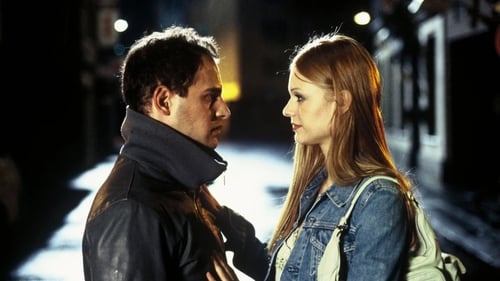
Roxy
Focuses on three very different siblings, all searching for happiness. Hans-Jörg is a sex addicted librarian, who is interested in young students. Werner is a successful politician with a dysfunctional family. Agnes, a trans woman, works as a table dancer in a night club. The three brothers just have one thing in common: their longing for a happy life.

Käthe

Die Leserin

Regine Gorler
Due to a delayed flight a group of German flight passengers have to wait in the hall of the airport of Manila. The crowd is quite mixed, ranging from an cultivated east German teacher couple up to sleazy sex tourists. As the waiting prolongs, more and more aggressions and long repressed behaviors shed their way to the surface.

Gunhild

Direktorin
A group of kids grow up on the short, wrong (east) side of the Sonnenallee in Berlin, right next to one of the few border crossings between East and West reserved for German citizens. The antics of these kids, their families, of the "West German" friends and relatives who come to visit, and of the East German border guards, all serve to illustrate the absurdity of everyday life on the Sonnenallee, and therefore throughout the former East Germany.

Mutter Timm
Gesche's Poison is a psychological portrait loosely based on the true story of Gesche Gottfried who became notorious in 19th century Bremen for killing fifteen people with arsenic. Known by her neighbors and friends as a merciful Christian, loving mother and devoted wife, she poisoned within fifteen years her parents, her brother, two husbands, three children and numerous friends. When caught, she never denied her deeds, but could not give any reason.
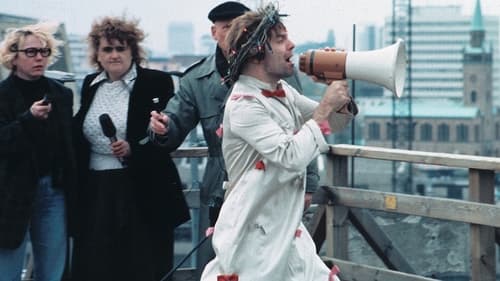
Self
An eccentric homage to the Rainer Werner Fassbinder days of German filmmaking.
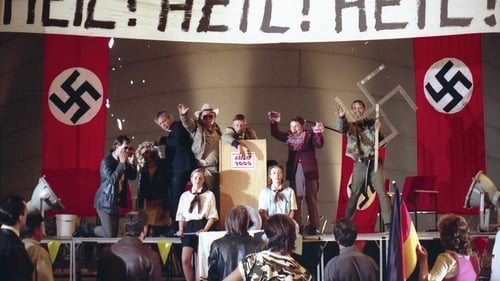
Margret
Germany, right after the re-unification. The people are out of control, blind hatred towards immigrants is common sense. In this time, a social-worker, with the mission to bring a Polish family to their destination (an immigration camp in a little provincial town called Rassau), gets kidnapped just as the family. Chief inspector Koern and his girl-friend start to investigate in this matter in Rassau, exploring a world of obsessive sex, mislead lust and an over-whelming irrational love to the German nation, infiltrating anyone's mind. Rascism doesn't start with shaved hair and boots but rather in the middle of society itself...
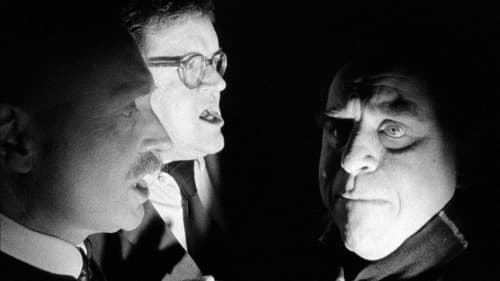
Martha Goebbels
On 30 April 1945, dictator Adolf Hitler, his wife Eva Braun, and prominent members of the Third Reich live out their final hour in the Führerbunker.
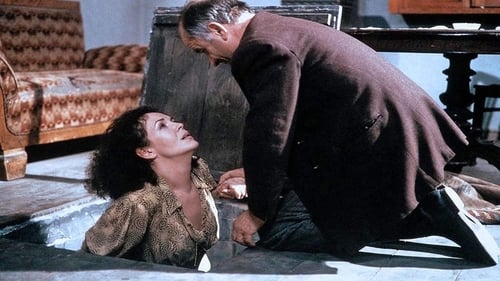
Eugenia
In the winter of 1942-43, a Jewish family leaps from a train going through Silesia. They are separated in the woods, and Leon, a local peasant who's now a farmer of some wealth, discovers the woman, Rosa, and hides her in his cellar. Leon's a middle-aged Catholic bachelor, tormented by his sexual drive. He doesn't tell Rosa he's seen signs her husband is alive, and he begs her to love him. Rosa offers herself to Leon if he'll help a local Jew in hiding who needs money. Leon pays, and love between Rosa and him does develop, but then Leon's peasant subservience and his limited empathy lead to tragedy. At the war's end, a ray of sunshine comes from an unexpected place.

Sekretärin

Staatsanwältin
Oskar Panizza’s The Council of Love (1895) is a blasphemous play set in 1495, during the first recorded outbreak of syphilis, which Panizza satirically presents as the punishment from Satan for sexually active humans. As a result, Panizza was imprisoned for obscenity. Schroeter alternates scenes from the Panizza’s work with a dramatization of his trial, presenting the play as an expressionist spectacle performed by actors wearing exaggerated makeup who gesture and grimace grotesquely. The film thus forms a bridge between Schroeter’s use of tableaux in his early experiments with the political urgency of his 1980s films. On the eve of the AIDS crisis, Schroeter is presciently worried about disease as an excuse for governmental repression and the oppression of sexuality. - Harvard Film Archive

Margit Gluckmeister
A young woman left her family for an unspecified reason. The husband determines to find out the truth and starts following his wife. At first, he suspects that a man is involved. But gradually, he finds out more and more strange behaviors and bizarre incidents that indicate something more than a possessed love affair.
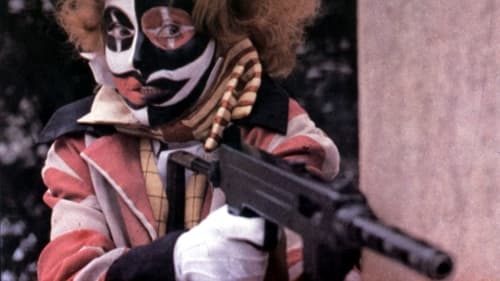
Petra Vielhaber
A mogul merrily funds terrorists to boost his computer sales, by panicking West German government and industry c. 1980, as the third generation of Western European left-wing activists forms, after crippling of the violent Red Army Faction. International capitalist PJ Lurz's secretary is a gang member, while her police commissioner father-in-law/lover hired Lurz' corporate security force.

Frl. Rosner
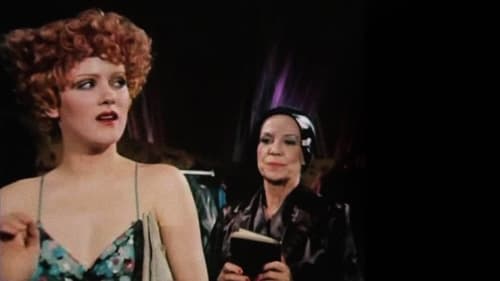
Sylvia Fowler
The main characters in this film are wives of rich men who have nothing to do because they have staff – like the cook, the maid, the hairdresser, the manicurist, the governess, the teacher, the tailor etc. – who work for them. Naturally, the wives themselves do not pursue careers, they depend on their husbands’ money. This is why most of their thoughts revolve around the husband. And because the husband only appears as “the” man, there is no man in this film. All women fight for the same man. Those who have one, want to keep him no matter what. And those who do not have one yet only have one goal: To take away somebody else’s husband.

Marlene
When Hitler watches Marlene Dietrich in a movie, he falls in love with her. He persuades her to come back to Germany to be with him, but upon her arrival she constantly insults and provokes him until he eventually, on her command, bites the carpet to bits.

Ariane Christ
A husband and wife lie to each other about their weekend travel plans, only to both show up at the family's country house with their lovers.
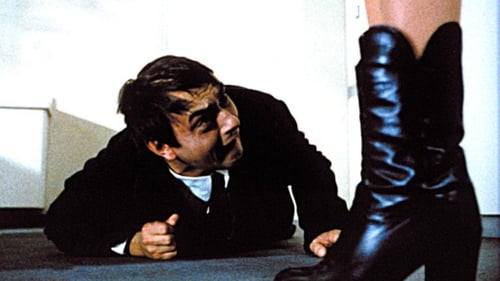
Andree
This fast-paced black comedy by wunderkind director Rainer Werner Fassbinder follows the frantic efforts of a starving and confused writer, Walter Kranz to beg, borrow or steal enough money to survive on, and at the same time make some sense of his confusing life. Unable to write enough to keep his publisher's royalty advances coming, he seeks out a woman he imagines is a prostitute and interviews her for material. He is also inspired to utter some poetry, which his brassy, outspoken wife identifies as coming from the famous homosexuality-advocating mystical German poet, Stefan George. This inspires Walter to take a closer look at the gay scene, and he quickly becomes a sort of celebrity there.
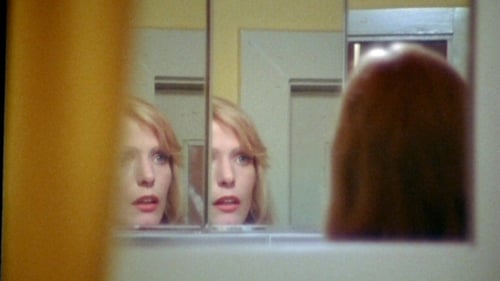
Margot
After having her second child, a German housewife suffers from post-partum depression before inexplicably falling into a continually misdiagnosed mental state, befuddling her relatives.
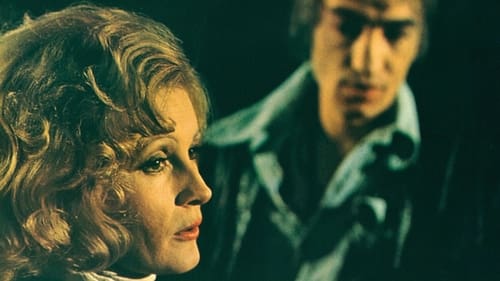
Frau Thälmann
After a worker kills a superior and commits suicide, each of his family members attempts to forge a path forward in life.

Martha
After the death of her abusive father, lonely librarian Martha is caught in a strange, sadomasochistic relationship with a monstrous husband whom she begins to suspect may be trying to murder her.

Nora Helmer
A childish wife reveals surprising strength when faced with blackmail. Based on A Doll's House by Ibsen, this is a video recording made for German television.
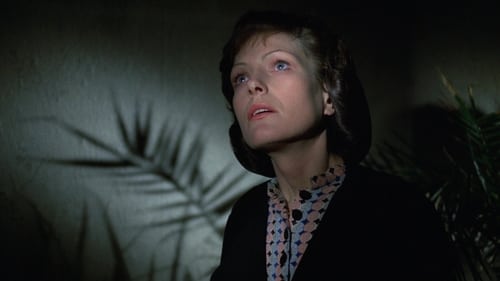
Frau Lindner
A German serial killer preys on boys and young men during the so-called years of crisis between the wars. Based on the true story of Fritz Haarmann, aka the Butcher of Hanover and the Vampire of Hanover.

Geesche Gottfried
A very stylized TV version of the Fassbinder play. The set consists of a few pieces of furniture in front of a large screen on which coastal scenery is back projected. Geesche is a nineteenth century woman who wants to have a mind of her own. She defies convention and will do anything to achieve her freedom from oppression by her family and friends. (synopsis written by Will Gilbert)

Petra von Kant
Petra von Kant is a successful fashion designer -- arrogant, caustic, and self-satisfied. She mistreats Marlene (her secretary, maid, and co-designer). Enter Karin, a 23-year-old beauty who wants to be a model. Petra falls in love with Karin and invites her to move in.

Berta
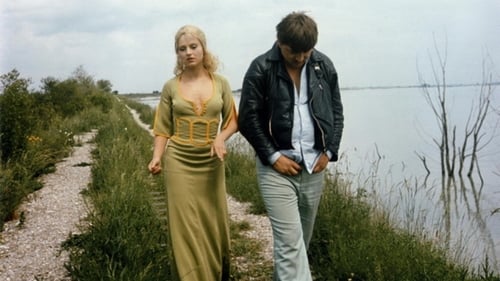
Margarete
Can a small group of people start a proletarian revolution, asks the "Black Monk" in a leather jacket. The medieval shepherd, Hans Boehm, claims to have been called by the Virgin Mary to create a revolt against the church and the landowners. The "Black Monk" suggests that he would have more success if he dressed up Johanna and had her appear as the Virgin Mary.

Vittoria
Avant-garde adaptation of a Carlo Goldoni play. Well-to-do Venetians congregate in a coffee house and discuss their problems.



























